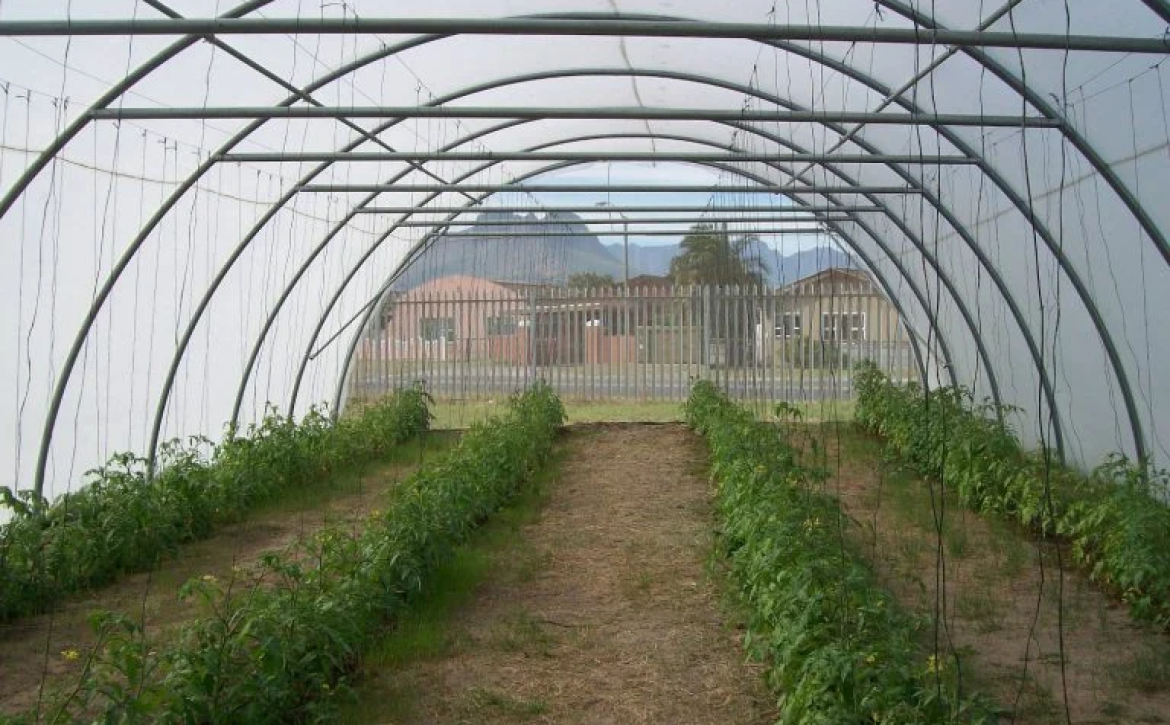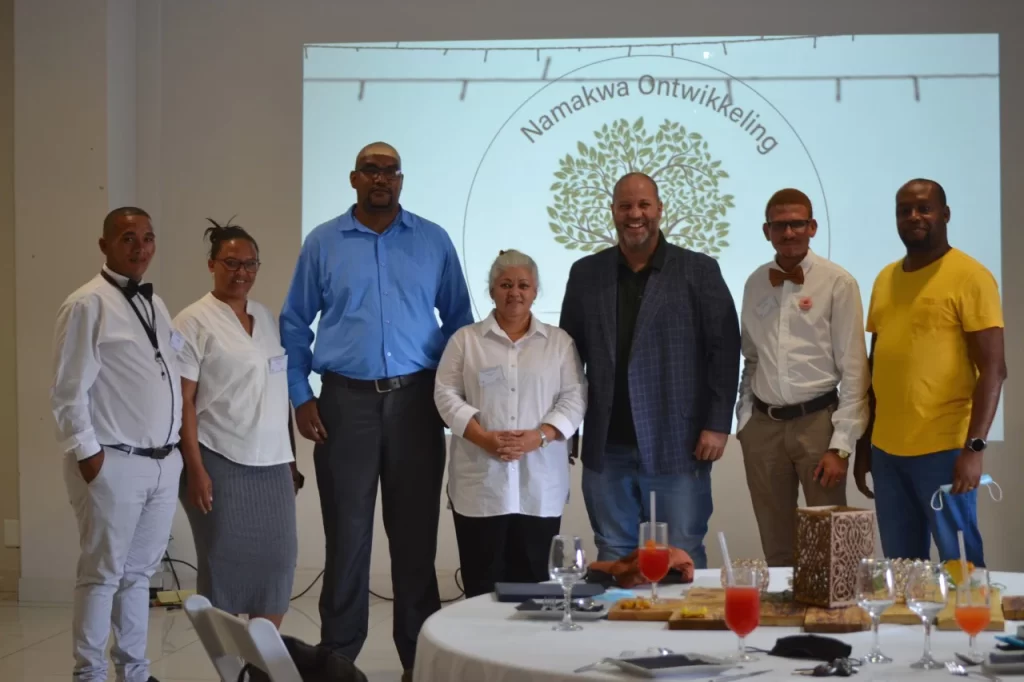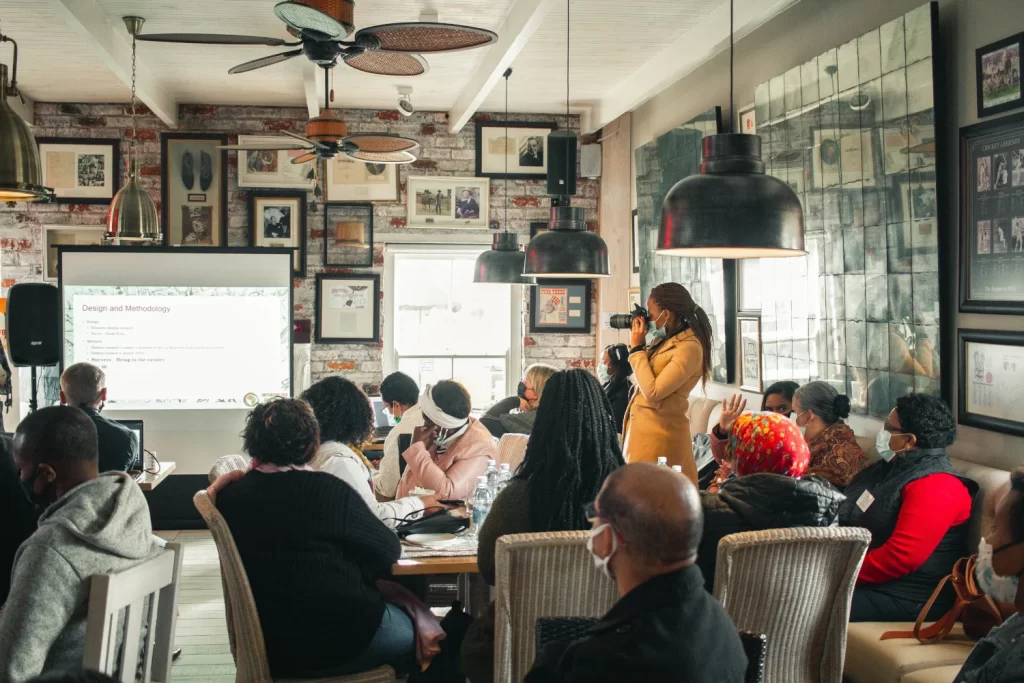SA Trust partners with community foundations to overcome challenges posed by Covid-19 pandemic

The Southern Africa Trust is a regional organisation that supports citizen engagement by generating relevant knowledge to inform policy discussions. It facilitates partnerships between policymakers, civil society and private sector groups for joint action to advance the pro-poor development agenda.
It also mobilises and builds agency among the poor, marginalised and vulnerable groups for their voices to be heard in policy dialogue and the ability to hold governments to account. The Southern Africa Trust programme covers the following areas: climate change and natural resource management, gender justice, youth, economic recovery and Covid-19.
With support from Charles Stewart Mott Foundation, SA Trust is working with community foundations in Southern Africa. These are grantmaking public charities that are dedicated to improving the lives of people in defined local geographical areas. With a spike in poverty levels, unemployment, and loss of income due to the Covid-19 pandemic, the role of community foundation has gained more significance in identifying and solving community problems.
In South Africa, SA Trust is working with Community Development Foundation Western Cape (CDF-WC), Initiative for Community Advancement (ICA), Cederberg Social Development Foundation (CSDF), Namkawa Ontwikkeling (NAMKO) and Uthungulu Community Foundation (UCF).
CDF manages to keep their doors open
The Community Development Foundation (CDF) Western Cape is looking forward to a sustainable future after forging a partnership with the Southern Africa Trust.
Executive Director of CDF Western Cape Freda Philander said the foundation, which has the vision “to ensure that ordinary people living in the Western Cape are provided the opportunity to identify their potential, set appropriate goals and achieve extraordinary dreams”, managed to keep its doors open amid the donor funding crisis that came with the Covid-19 lockdowns in 2020. A grant from SA Trust came in the nick of time, as international donors were withdrawing funds from community development organisation at the height of the pandemic.
“In South Africa a lockdown was announced in March 2020, and that is when all the donor support was either cancelled, or they exited. Fundraising initiatives were also either aborted or postponed due to lockdown, so there was a possibility that CDF would close in September 2020. SA Trust came in as a partner and gave us a much-needed grant of R300 000, which was made in two tranches. SA Trust helped us with institutional strengthening and put us back on track,” said Philander.
CDF Western Cape works with 13 other local community-based organisations (CBOs) in Delft, Hanover Park, Heideveld, Mitchells Plain, Khayelitsha, Seawinds and Atlantis, which in turn reaped positive spinoffs from SA Trust’s grant.
By keeping its doors open, CDF was able to provide grants to local community partners, which went towards feeding schemes in the communities during the Covid-19 pandemic. This opened avenues to the local CBOs to raise funds and forge partnerships for sustainability with other donors.
“In Delft, Masithembele Enrichment Centre joined Food Forward, which provides them with monthly food contributions that reach 80 families. They continue to feed about 4 000 children and adults per month from contributions received through local community giving,” Philander said.
“The Alcardo Andrews Foundation in Hanover Park forged further partnerships and managed to feed 8 900 people in the morning and 1 151 in the evening with warm meals. Due to the Covid-19 relief grant made by CDF Western Cape, the Children Resource Centre was able to attract the attention of some donors that gave them more funding, which allowed them to feed 60 children in 11 areas in the Western Cape for three days per week,” she said.
The charitable foundation’s aim is to continue to support communities while taking care not to strip them of their agency. “It’s about demonstrating the strength and power of, by and for the community. It was and still is the trust relationships built over many years, which continue carrying the foundation through crises,” she said.
Philander added that CDF envisaged an ongoing partnership and collaboration with SA Trust, in the form of “focused and meaningful dialogues on social justice and the alleviation of poverty, horizontal philanthropy, peer training and support”.
Namakwa community fell into hard times
Southern Africa Trust has helped several non-profit organisations (NPOs) in the Northern and Western Cape to navigate the unprecedented difficulties that came with Covid-19, with positive spinoffs for dozens of local communities.
SA Trust has assisted local NPOs involved in community development with capacity building in addition to financial support. Namakwa Ontwikkeling (NAMKO) — a community outreach foundation in Okiep — was on the verge of closing down after 28 years of supporting local communities.

SA Trust has provided financial support to NAMKO, which helps the Namakwa community in Okiep
NAMKO’s Brendon Andrews said SA Trust gave them R425 000 at a time when funding from overseas donors was running dry because of the Covid-19 crisis.
“We are the oldest organisation based in this area. Due to the Covid-19 pandemic, many other small organisations closed down. They got some of their funds from overseas donors, but during the Covid-19 crisis, those overseas companies and donors withdrew their funding from South Africa, and used it in their own countries,” said Andrews.
“SA Trust first supported us with R250 000, then added another transfer of R108 560; the last one was R65 000. But when we also consider training and non-financial support, it adds up to a lot.”
According to Andrews, who is now 40, and has been working with the community since he was 14, NAMKO has three programmes: Inspired Women, Food Sovereignty and the Youth Programme. It aims to address gender-based violence, food security and over-indebtedness respectively with the three programmes.
The Namakwa community fell into hard times after a copper mine that supplied the bulk of employment in the area closed down in the 1990s. The community was then beset with debt, substance abuse and gender-based violence, along with other social ills symptomatic of unemployment and poverty.
NAMKO sadly lost director Quinta Titus recently, and training exchanges facilitated by SA Trust helped them focus on succession planning. “We are busy fundraising, so that we can set up certain targets for certain issues in our community. For gender-based violence, which is a huge factor around here, we’ve established the Quinton Titus Response Fund. But we’re also not just focusing on GBV; we would like other organisations in the community to apply for funding.”
Andrews said the aid that SA Trust has provided NAMKO will have a positive ripple effect on the communities, as the NPO aims to pay it forward to frontline organisations, to empower them and to mitigate the effect of the donor drain.
Youth recreational centres for drug and substance abuse
A rural-based foundation was able to help people who lost their jobs due to Covid-19 lockdowns start their own businesses, after receiving funds from Southern Africa Trust (SA Trust).
According to Jeremy Maarman, Founder and Director of Initiative for Community Advancement (ICA), the foundation received R260 000 in funding from SA Trust, in addition to non-financial support.

The ICA in Bergrivier is among the many beneficiaries of SA Trust
“SA Trust has been supporting us since 2019 as a capacity-building partner. In 2020 they funded three of our staff members to attend courses at Wits for institutional development. They invested R260 000 in our projects; that funding was received in October 2020.”
The ICA is a small-scale funder of community projects, situated in Piketberg in the Bergrivier municipal area of the Western Cape. The foundation has two active funds: the Bergrivier Youth Fund and the Community Rebuilding Fund.
Anzita Booys received funding from the ICA’s Community Rebuilding Fund, which helped her get back on her feet after she lost her job due to Covid-19 lockdowns.
“I worked for five years at PPC kiosk and due to lockdowns in 2020, I lost my job. I decided I must make a plan. Where was I to get a job during lockdowns?”
Boots used her passion for catering and experience to start her own business. “I registered my business Zita’s Foods and started selling take-aways and platters, and provided catering services. Then I heard that ICA supports small businesses, and I applied for funding.”
Booys got R8 000 funding from ICA and used it to buy equipment and stock. “I bought a deep freezer, a mini oven and groceries, then I got a tender at the PPC kiosk and I am now the owner. It’s almost a year now, and thanks to ICA I am open for business.”
Maarman said the ICA has community-affiliated funds and fund-raises locally. Those funds are distributed for local community issues.
“One of the biggest issues in the rural communities ICA serves is unemployment, which mostly affects young people. The Berg Youth Fund develops youth locally and provides soft skills development and recreational workshops. Idleness can lead to negative behaviours. Drug abuse and substance abuse are huge in our area,” he said.
ICA also has an education fund supported by a dentist who is originally from the Bergrivier area. “Sometimes it is too late to invest in university education for youths. When they go from rural areas to the big city, they can easily be enticed into drugs, and disappear in the system.“The Doctor Somers Education Fund supports beneficiaries from primary school and takes them to well-resourced high schools that offer better quality schooling and career guidance. This allows them to choose subjects in line with their abilities, to curb the high university dropout rate. The support needs to come early on.”
The ICA’s current focus is on getting members of the rural communities in the West Coast to become more actively involved in their own development processes. “We have a contract with SA Trust until September 2021, and we are hopeful their support will continue for another three years,” said Maarman.









